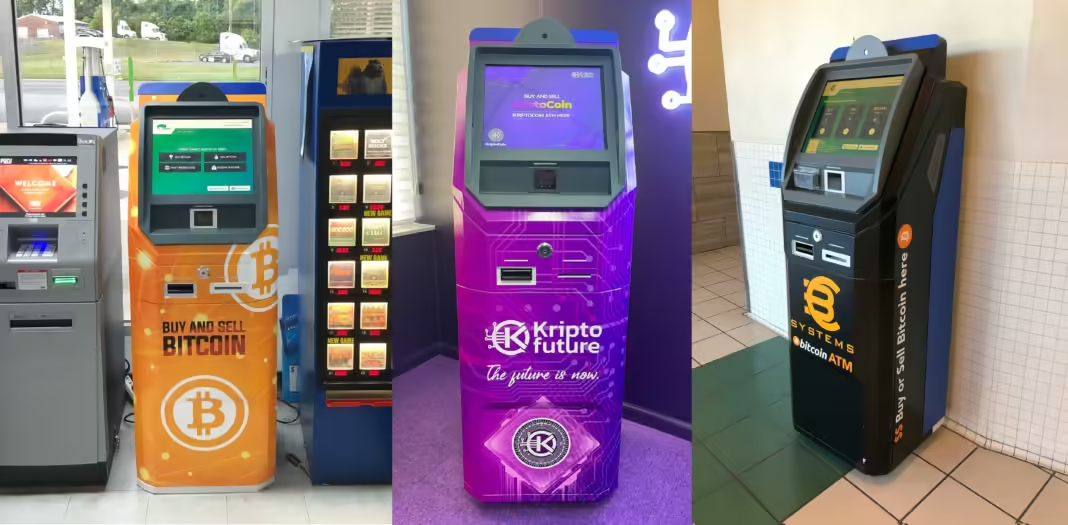In a surprising turn of events, former U.S. President Donald Trump made headlines by becoming the first ex-president to use Bitcoin for a transaction at a New York City restaurant. This unprecedented move has sparked widespread discussions about the mainstream acceptance of cryptocurrencies and the shifting attitudes toward digital assets among high-profile individuals. While Trump has historically been a critic of cryptocurrencies, his engagement with Bitcoin suggests a nuanced shift in perspective, possibly signaling a broader acceptance of crypto within mainstream circles.
On a seemingly ordinary evening in New York City, Donald Trump made an unexpected appearance at a local restaurant, where he chose to pay for his meal using Bitcoin. The event was confirmed by the restaurant’s management, who shared that Trump used a digital wallet to complete the transaction seamlessly. The specifics of the transaction, such as the amount of Bitcoin used, remain undisclosed. However, the mere act of a former president utilizing a cryptocurrency like Bitcoin has profound implications.
Trump’s decision to use Bitcoin in a public setting contrasts starkly with his previous stance on digital currencies. During his presidency, Trump was an outspoken critic of Bitcoin and other cryptocurrencies, once labeling them as “highly volatile” and suggesting that they could facilitate illegal activities. He even went as far as to assert that Bitcoin and other digital assets were “not money” and that they threatened the U.S. dollar’s supremacy. This background makes his recent engagement with Bitcoin all the more intriguing and significant.
The use of Bitcoin by a figure as prominent as Donald Trump highlights the evolving attitudes toward cryptocurrencies in the United States and globally. Despite skepticism from various political and economic leaders, cryptocurrencies have steadily gained traction as viable financial instruments. Institutional investors, major corporations, and now even former presidents are increasingly exploring the potential of digital assets.
Trump’s Bitcoin transaction also aligns with a growing trend among influential figures openly endorsing or using cryptocurrencies. From Tesla CEO Elon Musk advocating for Dogecoin to Twitter founder Jack Dorsey’s support of Bitcoin, high-profile endorsements have played a pivotal role in bringing cryptocurrencies into the public eye. Trump’s engagement with Bitcoin adds another layer to this evolving narrative, potentially encouraging other public figures to explore digital currencies.
Donald Trump’s use of Bitcoin in a New York City restaurant can be seen as more than a simple transaction—it serves as a statement on the growing mainstream acceptance of cryptocurrencies. For many, this event symbolizes a turning point, illustrating that digital assets are no longer confined to tech enthusiasts and speculative investors. If a former president is willing to use Bitcoin in his daily life, it suggests a level of legitimacy and acceptance that could encourage others to follow suit.
The broader implications of this event could be far-reaching. Firstly, it may contribute to normalizing the use of cryptocurrencies in everyday transactions, helping to bridge the gap between digital assets and traditional financial systems. As more individuals witness influential figures like Trump engaging with cryptocurrencies, it could reduce the stigma and uncertainty surrounding their use.
Secondly, Trump’s action may influence policymakers and regulators to reconsider their stance on digital currencies. Despite his prior criticisms, Trump’s public use of Bitcoin could be interpreted as a subtle endorsement of its potential role in the economy. This may prompt lawmakers to develop more nuanced and supportive regulatory frameworks for cryptocurrencies, balancing the need for oversight with the desire to foster innovation in the financial sector.
The significance of Trump using Bitcoin must be viewed within the broader context of cryptocurrency’s journey toward mainstream legitimacy. Over the past few years, Bitcoin and other digital assets have made considerable strides in gaining institutional acceptance. Major financial institutions such as JPMorgan Chase and Goldman Sachs have begun offering cryptocurrency-related services to their clients, while companies like Tesla and MicroStrategy have added Bitcoin to their balance sheets.
Additionally, the growing infrastructure supporting cryptocurrency transactions, such as digital wallets and payment processors, has made it easier for individuals and businesses to adopt digital currencies. Restaurants, retailers, and service providers increasingly accept Bitcoin and other cryptocurrencies, integrating them into their payment systems. Trump’s use of Bitcoin at a restaurant is a manifestation of this growing ecosystem, demonstrating that digital currencies can be seamlessly integrated into daily life.
While Trump’s Bitcoin transaction has been hailed by many in the crypto community, it has also drawn criticism and skepticism. Some argue that Trump’s use of Bitcoin does not necessarily indicate a change in his views on digital currencies or a broader shift in government policy. They contend that it may have been a one-off event rather than a signal of genuine support for the crypto ecosystem.
Moreover, critics warn against reading too much into the actions of one individual, regardless of their status. They point out that the crypto market’s volatility and regulatory challenges remain significant hurdles to its widespread adoption. For some policymakers and financial experts, Trump’s use of Bitcoin is not enough to dispel concerns about the risks associated with digital currencies.
Donald Trump’s use of Bitcoin in New York City represents a symbolic moment in the ongoing evolution of cryptocurrencies. It underscores the shifting perceptions of digital assets, even among those who were once their harshest critics. While this single event does not guarantee the mainstream adoption of Bitcoin or a change in regulatory approaches, it serves as an important milestone, highlighting the growing role of cryptocurrencies in everyday transactions and public life.
As the world watches this unexpected development, it raises important questions about the future of digital currencies. Will other prominent figures follow Trump’s lead? How will this influence public opinion and regulatory frameworks? While the answers remain uncertain, one thing is clear: cryptocurrencies continue to break new ground, redefining the boundaries of finance and society.
